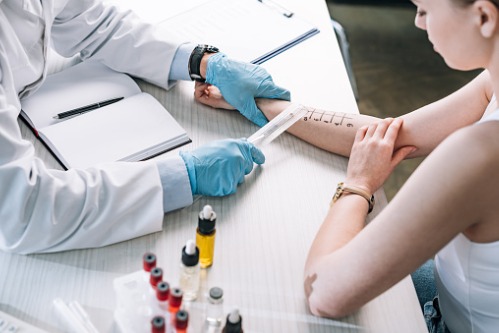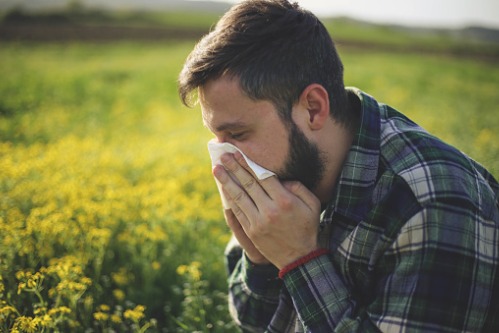
Who Should Get Allergy Tested?
Most allergy conditions, such as a mild case of hay fever, usually do not require any form of long-term treatment. Many individuals can control their allergies with the occasional over-the-counter medication. However, sometimes allergy symptoms can interfere with daily activities and reduce your quality of life.
What is an allergy?
An allergy occurs when a person reacts to substances in the environment that are harmless to most people. Dust mites, pets, pollen, insects, molds, foods, and some medications are common allergens. Allergy symptoms can include:
- Skin rashes
- Trouble breathing
- Coughing
- Sneezing, runny nose, or congestion
- Itchy eyes and throat
- Upset stomach
Asthma and allergies can affect anyone, regardless of age. They are more common in children but can occur for the first time at any age. They may affect an individual in early childhood and disappear for many years, starting up again in adulthood.
Types of allergy conditions
There are many types of allergies, including:
Allergic Rhinitis (Hay Fever)
Allergic rhinitis, commonly known as hay fever, is a group of symptoms affecting the nose. Allergic rhinitis develops when the body’s immune system recognizes and overreacts to something in the environment that typically causes no problems in most people. Symptoms of allergic rhinitis may include sneezing, congestion, runny nose, and itching of the nose, the eyes, and/or the roof of the mouth. Some individuals may experience these symptoms seasonally, while others may experience symptoms year-round.
Asthma
Asthma is a chronic disease involving the airways in the lungs. Asthma causes the airways to always be inflamed. They become even more swollen, and the muscles around the airways can tighten when something triggers your symptoms. As you can imagine, this makes it extremely difficult for air to move in and out of the lungs, causing shortness of breath, wheezing, and chest tightness.
Atopic and Contact Dermatitis
There are two common forms of skin rashes, including atopic dermatitis and contact dermatitis. Atopic dermatitis is a skin condition that may be passed on from parents to children. Common symptoms of atopic dermatitis include red, very itchy dry patches of skin and thickened skin with markings.
Contact dermatitis occurs when the skin comes in contact with a substance that causes a delayed allergic reaction, or when there is an injury to the skin’s surface. There are two main types of contact dermatitis: irritant and allergic.
- Irritant contact dermatitis occurs when skin cells are damaged by exposure to irritating substances, such as detergents, soaps, bleach or nickel-containing jewelry.
- Allergic contact dermatitis is a delayed allergic reaction that appears as a rash a day or two after the skin is exposed to an allergen. A common example is poison ivy.
Anaphylaxis
Anaphylaxis is a rare, potentially fatal allergic reaction that affects many parts of the body at the same time. The most common anaphylactic reactions are to foods, insect stings, medications and latex. Symptoms may include:
- Vomiting or diarrhea
- A dangerous drop in blood pressure
- Difficulty breathing
- Swelling of the throat and/or tongue
- Loss of consciousness
When to visit an allergist
If your allergy symptoms last longer than two weeks and keep returning, you should consider visiting an allergist. Often, the symptoms of asthma and allergies develop gradually over time and can cause many problems with your day-to-day life. While you may want to try eliminating exposure to certain allergens you believe may be causing your symptoms, you still won’t have a sure answer of what you’re allergic to.
With the help of an allergist, your symptoms usually can be prevented or controlled with major improvement in quality of life. The first thing an allergist will want to do is perform tests to determine what allergens are involved. Once that is addressed, they will develop a treatment plan for your individual condition with the goal of you living symptom-free!
At Northeast Allergy, Asthma & Immunology, we can discover hidden allergens and provide additional treatments, including immunotherapy, to help you feel your best. Contact us today to schedule your appointment.



